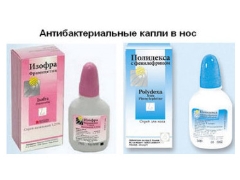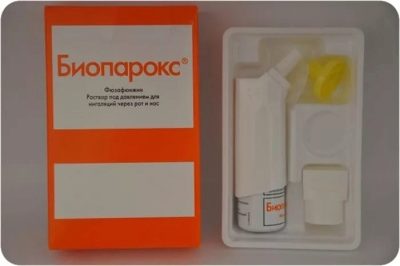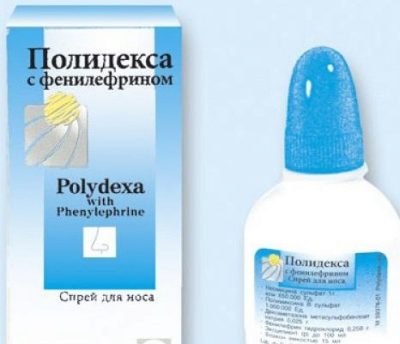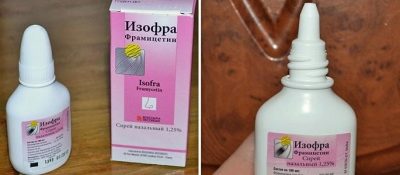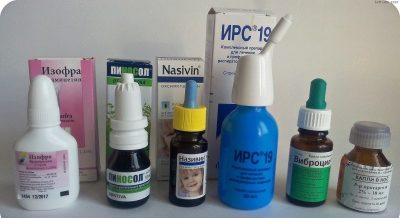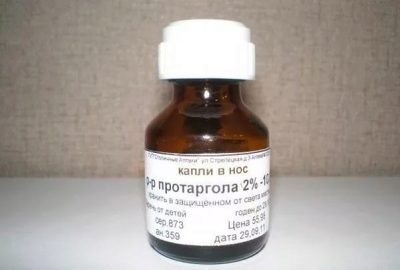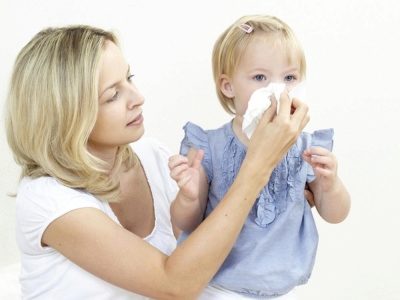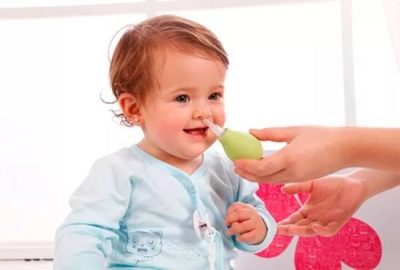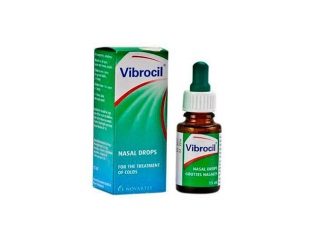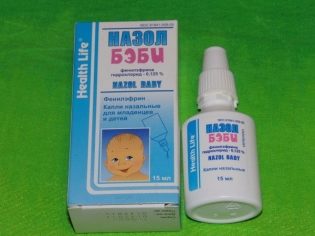Nose drops with antibiotics for children
A runny nose - the true companion of various diseases. Most often viral, but sometimes bacterial. And still with a stuffy nose accompanied by all sorts of allergies - to bloom, pollen, chemicals.
A runny nose, even its simplest form, is not at all as harmless as it may seem. The inflammatory process in the nose proceeds in close proximity to the brain, and at any time can be complicated in the most undesirable way. For example, causative agents of rhinitis can go up and down from the nasal passages. In the first case, this will cause otitis, in the torus - pharyngitis or laryngitis. And otitis, in turn, is likely to develop into meningitis.
Therefore, any treatment should be complete and timely. Will it help prevent the unpleasant effects of antibiotic drops in the nose for children? Let's talk about local antimicrobials.
When required?
- When the doctor has reason to assume the bacterial origin of the common cold. The surest way to find out is to make a special bacteriological analysis of nasal mucus.
- When rhinitis, especially its purulent form. When there is bacterial inflammation of the nasal mucosa, every doctor knows that this can turn into big problems - such a runny nose is complicated quite often and causes pharyngitis, laryngitis, sinusitis, tracheitis, adenitis. In addition, the appearance of pus in the nasal mucus may indicate that the process has become chronic. Antibacterial drops are not a means of prevention, they cannot prevent a complication, but rather effectively cope with the pathogens of the inflammatory process and prevent the further spread of infection.
- With sinus. Complicated forms of the disease or prolonged sinusitis are often in need of treatment with a local antibiotic, alone or in combination.
- With prolonged rhinitis. When no other methods have helped, and nasal congestion has not passed for more than 1 month.
- With sinusitis.
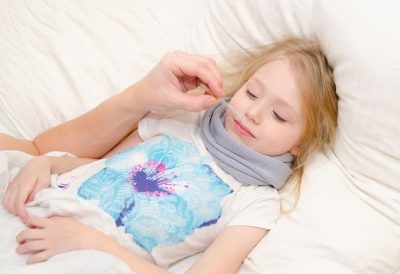
Thus, the drops with antibiotics do not need to drip a child, if he has:
In the next video, the doctor will tell you when it is necessary to use drops with antibiotics and how to choose them correctly.
Advantages and disadvantages
The undoubted advantage of such a dosage form over systemic pills, injections and capsules is that the medicine immediately goes where it is needed - to the focus of the inflammatory process. So, and immediately begins to act. Since the drug does not pass through the stomach and intestines, the likelihood of developing dysbacteriosis associated with antibiotics is significantly reduced.
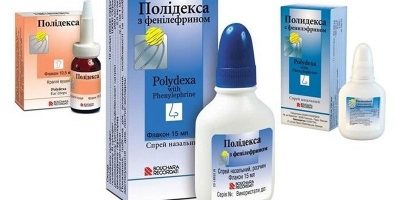
Minus of such drugs in a relatively small dosage of the active substance.The antibiotics in the light stages of the disease in the drops and sprays can be won without difficulty, but the more complex stages of ENT diseases cannot be overcome with local preparations alone. And sometimes the doctor prescribes drops in addition to systemic antibiotic treatment, i.e. pills or injections will be held in parallel with instillation into the nose.
Nasal preparations
- "Bioparox". I want to start a review of the names with this drug, because its history is instructive for those who like to treat everything with antibiotics. This antimicrobial spray was so popular that manufacturers had to ... remove it from production. Why? Yes, because the uncontrolled use of the drug, its affordable price and over-the-counter leave from pharmacies led to the fact that adults and children squirted Bioparox when it was necessary and when it was not necessary. Now the drug is recognized as ineffective against most germs.
That is, the existing bacteria and sticks have developed a durable immunity against the drug. On this sad note ended the story of one of the best in the history of children's antibiotics.
- "Polydex Spray". Immediately two antibiotics in the composition of this drug effectively resist the majority of gram-positive and gram-negative bacteria. The spray is recommended for children who are already 2.5 years old and for children over this age. The medicine is given for rhinitis, rhinopharyngitis, sinusitis. Contraindicated kiddies with kidney disease.
- «Isofra». This is a nasal spray, mistakenly called "drops." Antimicrobial drug is indicated for various diseases of the upper respiratory tract. The medicine can be taken to children at any age, but not more than a week. If there is no effect, “Izofru” needs to stop splashing into the nose. The list of contraindications is limited only by an allergy to framycetin.
Preparations that do not contain antimicrobial components
A drug | Place of application | Act |
Fluimucil (solution) | Nose | Mucolytic, antioxidant, anti-inflammatory. |
Nose | Vasoconstrictor, antiallergic. | |
"Interferon" (drops) | Nose | Antiviral, immunostimulating. |
"Protargol" (drops) | Nose | Anti-inflammatory, antiseptic. |
Nose | Antiviral, immunomodulating, anti-inflammatory. | |
"IRS-19" (aerosol) | Nose | Immunostimulating. |
«Pinosol"(Phytocaly and nasal spray) | Nose | Anti-inflammatory, decongestant, antibacterial, antifungal. |
«Kameton"(Phytoaerosol, spray) | Nose, throat | Anesthetic anti-inflammatory, antiseptic. |
"Complicated" drops
These are drops with more than two medicinal components. Doctors prescribe them, and do pharmacists in pharmacies with prescription department. Of course, there are few such pharmacies left, but they are in every city. The composition of the complex drops is also determined by the doctor. Most often they are with an antibiotic, with antiviral drugs, with hormonal agents, with herbal ingredients.
In complex drops often add antihistamines, which remove signs of allergy, as well as anti-inflammatory and painkillers. The most common components of complex drops are “Protargol”, “Interferon”, “Fluimucil”, “Levomycetin" and etc.
Complicated drops should be stored exclusively in the refrigerator, the shelf life of 5 to 15 days. On the Internet now you can find quite a lot of tips on how to plant complex drops yourself, even detailed recipes are provided. But this should not be done for two reasons:
- Firstly, you cannot know exactly which components your child needs right now, with a specific infection, and can make it worse by digging in an antibiotic for viral rhinitis or a herbal preparation for allergic rhinitis.
- Secondly, it is impossible at home to calculate the micro doses of the components with pharmacy accuracy. And taking on the advice of virtual "gurus" an ampoule of one drug and half a tablespoon of another is an approach that is not only not scientific, but also criminal. Such negligence can cost you and your baby dearly.
How to apply?
- According to the scheme. Drops with antibiotics are usually prescribed for a course of treatment, the duration of which should be determined by the physician. Antimicrobial drugs should be taken several times a day at regular intervals. This is important because each antibiotic has its own time of exposure, and when it ends, a new dose of anti-microbial drug must be administered to the body of the sick child.
- With preliminary preparation. Before using the drops, the nasal cavity must be washed with soda or saline solution, and a solution of furatsilina or sea salt ("Aquamaris", "Aqualore"). For purulent rhinitis, antritis, the use of an antiseptic in the nose is encouraged, for example,Miramistina". After washing, you need to wait about half an hour, drip vasoconstrictor drops («Vibrocil") To remove the swelling and" open "the nasal passages, and only then proceed to instillation of drops with an antibiotic.
All drops should be above room temperature, you can just warm the medicine bottle in your hand before you start applying.
For children under 1 year
The nasal passages in infants are notoriously rather narrow. The mucous membranes are friable, and the ENT organs are fully formed. All of this - additional factors provoking the emergence and development of inflammatory processes. The anatomical features of the structure of the nose and its sinuses in crumbs make the treatment process difficult.
Before inserting the drops into the spout, the baby needs to rinse the cavity and pull the mucus from the nose with a special aspirator. Bury drops baby should, turning his head slightly to one side.
As a vasoconstrictor drugs crumbs fit "Vibrocil" or "Nazol Baby».
What you need to remember?
- Drops with antibiotic prescribed only by a doctor.
- It is not possible to cancel the instillation yourself, even when an improvement occurs.
- Do not use at the same time two or more types of drops or sprays with antibiotics.
- Too long use of drops and sprays with antimicrobial components can cause bleeding of the nose - with a drop in atmospheric pressure, nose bleeds may begin in a child.
- In case of violation of the dosage and course of treatment, the bacteria may become resistant to the antibiotic, and the next time this drug will not be used. We'll have to find a new medicine for the child, more potent and probably more expensive.
- With frequent instillation of antimicrobial drops, an allergic reaction may form in a child.
- Side effects of taking antibiotics with drops and sprays can be anemia, loss of appetite, a change in the color of tooth enamel in a child, nausea, and upset stool. Be careful!
In the next video, Dr. Komarovsky will talk about whether it is worth taking drops with antibiotics for children and in what cases.
